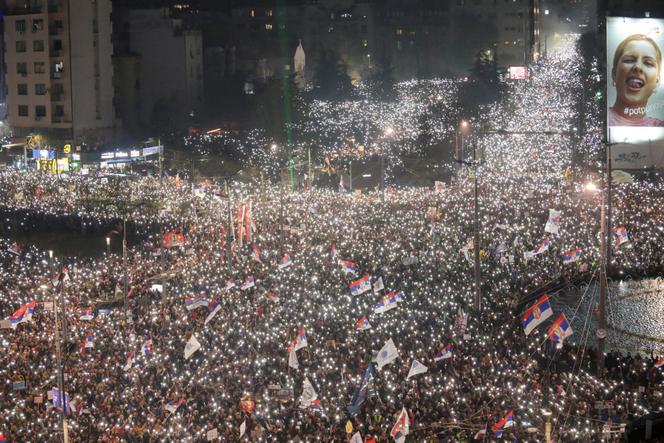


Belgrade experienced a historic day of anger on Saturday, March 15. In an atmosphere made electric by provocations from the government, hundreds of thousands of Serbians – 100,000 according to the police, around 300,000 according to an independent counting organization – poured into the streets of the capital to demand "justice," in the fifth month of what is the most powerful and longest-running anti-corruption protest movement ever seen in this Balkan country of 6.6 million inhabitants.
"We will no longer allow corruption to endanger anyone's life, as happened in Novi Sad, where it claimed 15 lives," a student speaker told the cheering crowd, referring to the collapse of the canopy at the main railway station of Serbia's second-largest city on November 1, 2024, which had only just been renovated. The tragedy triggered a wave of anger that first spread throughout the universities before expanding to the whole of society.
Saturday's demonstration was reminiscent of those in the 1990s that led to the fall of former dictator Slobodan Milosevic in 2000. All day long, the students, joined by Serbians of all ages, took to the streets of Belgrade in an atmosphere that remained largely peaceful, despite provocations by black-clad pro-government thugs hiding behind masks. The students also decided to end the demonstration early, following the use of a mysterious sound weapon, which caused a brief panic during the moment of silent meditation dedicated to the victims of Novi Sad.
You have 74.75% of this article left to read. The rest is for subscribers only.
